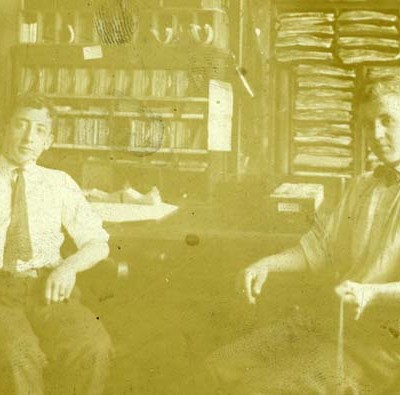
The area now known as Irwin, Pa., was original one of the initial townships created during the organization of Westmoreland County in 1773. A small village emerged when a road connecting Greensburg to Pittsburgh passed through the area. The creation of a permanent town followed the construction of a railroad stop in 1852. Coal deposits spurred the local economy. The borough of Irwin was incorporated in 1864.
Among the first Jewish settlers in Irwin were Abraham and Anna Frank, who came from Pittsburgh in 1878 to open a dry goods store. Abraham Frank eventually became a director of the First National Bank of Irwin, president of the Equitable Building & Loan Association and secretary of the Capital Fire Company, among other positions. A small Jewish community emerged in Irwin in the first decade of the 20th century. By 1905, it had enough children to put together a basketball team for a Zionist Council league.
An Irwin chapter of the National Council of Jewish Women was founded as early as 1922 and ran a school under the auspices of the Southwestern District of Pennsylvania Jewish Religious School program. Among the leaders of the Irwin NCJW was Celia Gross, whose husband Ben Gross ran a popular restaurant in Jeannette and later in Irwin.
The Jewish population of Irwin appears to have peaked at 88, according to a survey in the 1928-1929 edition of the American Jewish Yearbook. By the 1940-1941 edition, the population had fallen to 70. While that edition also lists a congregation in Irwin, no other reference to such a congregation exists, and many Jewish residents joined congregations in Jeannette and Greensburg to the east or McKeesport to the west. The Jewish community of Irwin founded two communal organizations in 1938: the Irwin chapter of Hadassah and the Tree of Life Brotherhood. A few young women in Irwin and Jeannette formed the “Winette” chapter of the B’nai B’rith Girls youth group in the 1940s.